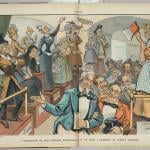INTRODUCTION
Jesus and His disciples are “sons” of the great King of the temple (17:25-26), and therefore they are brothers of Jesus and one another. The rest of chapter 18 tells us how brothers treat each other.
THE TEXT
“Moreover if your brother sins against you, go and tell him his fault between you and him alone. If he hears you, you have gained your brother. But if he will not hear, take with you one or two more . . . .” (Matthew 18:15-35).
CONTEXT
Talk about “church discipline” can sound ominous, evoking visions of the Inquisition and the Star Chamber. But Jesus talks about the church’s discipline in the context of teaching that we should be like children (18:3-5) and that we should offer unlimited forgiveness ( 18:21 -35). As we saw last week, we are to become like children by assuming a lowly position in relation to others, by becoming their servants. That is what church discipline is about. Church discipline is not supposed to be lording it over brothers but serving them. More immediately, Jesus brings up church discipline in the context of the parable of the lost sheep ( 18:12 -13). Confronting a brother with his sin is a way of bringing a straying sheep back to the fold. The goal of church discipline is always to “win your brother” (v. 15).
SELF-POLICING
The first step in the process Jesus lays out occurs between one brother and another (v. 15). When a brother sins, you’re not first to tell someone else, or tell the elders. The first step is to take the matter to your brother in private, and call him to repentance. Paul emphasizes that we should do this in humility, mindful of our own sins (Galatians 6:1). Church discipline begins with brothers policing brothers. Even the second step of discipline is fairly private. Jesus quotes a legal rule from Deuteronomy 19:15 and tells the offender brothers to take others with him. The witnesses need not be witnesses to the original sin, but they are representatives of the church and become witnesses to the sinning brother’s impenitence.
TELL IT TO THE CHURCH
The final step is to take the matter to the church as a whole (v. 17). This doesn’t mean that the offended brother starts circulating reports of his brother’s bad behavior. Reporting the matter to the church follows proper channels, through those gifted and ordained to lead the church (cf. 1 Corinthians 12:28 ; Hebrews 13:17 ). If a brother refuses to listen to the entire church, then he is no longer a brother but an outsider, a “Gentile” and “publican” (v. 17). Throughout Matthew’s gospel, Jesus has been generous and kind toward tax collectors and Gentiles, and that should be our pattern too. Someone who has been cut off from the church no longer has privileges as a brother, but is instead an object of evangelism.
HEAVEN AND EARTH
Jesus reinforces the authority of the church’s decisions by saying that they are backed up by the heavenly court (v. 18). The promise that Jesus will be in the midst where two or three are gathered fits in this same context. He is speaking not about prayer or worship; rather, He is promising to be speaking through “two or three” who judge an impenitent brother.











